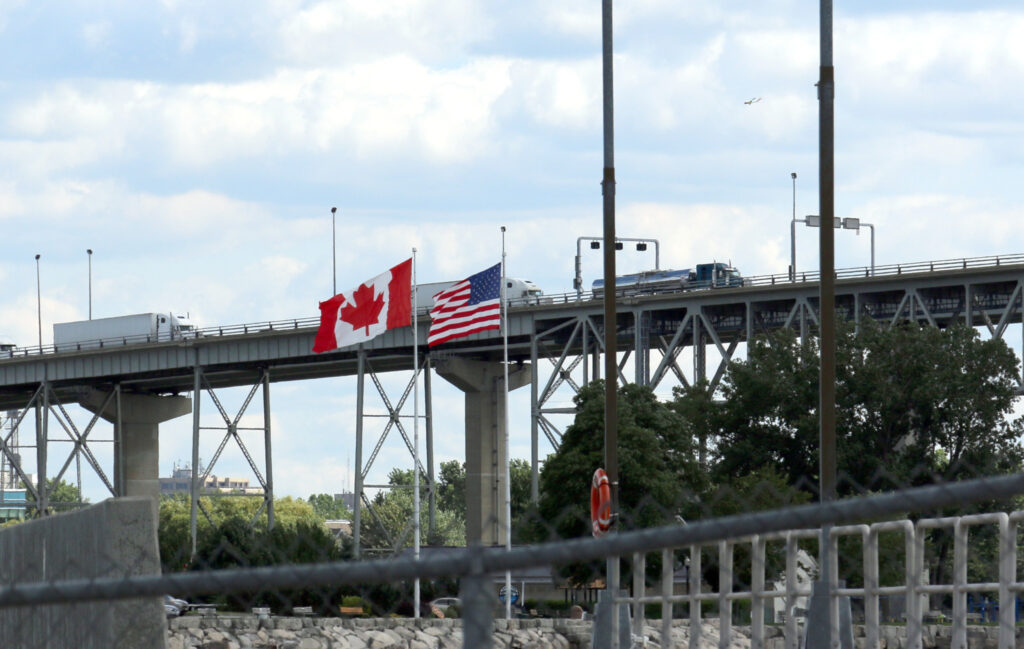CTA highlights steps to address ‘urgent’ supply chain challenges
The Canadian Trucking Alliance (CTA) has identified several industry challenges that it will submit to a new National Supply Chain Task Force, drawing on insights from a Wednesday meeting that included transportation leaders and staff from CTA and the Quebec Trucking Association.
“It is clear from this week’s discussions, all members of the supply chain are stressing the urgent need for the Canadian business and policy community to overcome the current inefficiencies in the supply chain to protect the reputation of Canada’s global competitiveness,” CTA president Stephen Laskowski said in a press release.
“It is CTA’s goal to identify inefficiencies throughout the supply chain and present solutions to government and stakeholders to implement.”

Regulatory issues highlighted during the meeting included barriers to in-transit and empty-trailer moves, immigration policies, and federal legislation that looks to provide federally regulated workers up to 10 paid sick days per year. If Canada Labour Code provisions are adopted by Parliament, the paid sick days would become available as of January.
There was also a call for funding to twin Quebec’s Hwy. 185 to the New Brunswick border, with CTA noting the project could open a long combination vehicle (LCV) network in Eastern Canada.
Border-related issues included the reopening of FAST (Free and Secure Trade) enrolment centers in Canada, and the need for ongoing investment in hardware and software for Customs, streamlined food inspections, and improved service by Customs brokers.
The alliance also emphasized the need for the federal government to provide training dollars and crack down on Driver Inc. – the fleets that misclassify employees as independent contractors.
The National Supply Chain Task Force was announced during a national supply chain summit in January. It has a mandate to consult with industry members, associations and experts to identify short- and long-term steps that could improve the supply chain.
The National Supply Chain Task Force is led by Jean Gattuso and Louise Yako.
Yako is former president and CEO of the B.C. Trucking Association (BCTA).
Have your say
This is a moderated forum. Comments will no longer be published unless they are accompanied by a first and last name and a verifiable email address. (Today's Trucking will not publish or share the email address.) Profane language and content deemed to be libelous, racist, or threatening in nature will not be published under any circumstances.
As a truck driver I can go to restaurants, bars, concerts, sporting events etc and June 20th I can sit on a plane full of people and trains but I can’t cross the border in my truck to do a job that sees me alone by myself 99.9% of the time. I am also a trainer so the effects of both freight and training on the supply chain is a double whammy.
DROP THE MANDATES.
10 paid sick days and the cost of medical supplies and treatment not covered bu Ohio or private insurance in ont would be a big help. A plan to train and ind insurance of New drivers for the first yrs that is paid by a surcharge on freight rates like a fuel surcharge is a good idea. We need a plan to protect truck driver and P SWs and other lower income higher risk workers. We also need to provide safe parking and a min rate of $35 for driver Inc drivers. Only allow driver Inc drivers for those with 2 or more years of experience. We cannot expect the taxpayers to pay for training of new drivers or alow more immigrants as truck drivers until solve the issue of current treatment of truck drivers when the get sick or injured or are homeless.